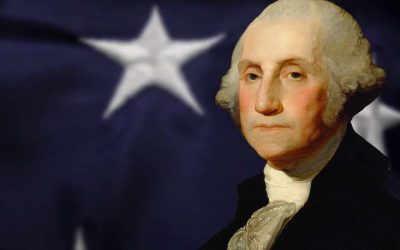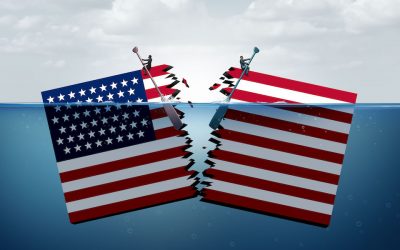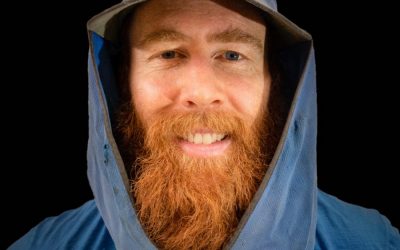By William H. Benson
The Parallel Lives
Of The NOBLE AMERICAN RELIGIOUS THINKERS AND BELIEVERS:
Roger Williams VS. Cotton Mathers
NEW ARTICLES
Attempts at Thought Experiments: To Assay, To Weigh, To Balance, to Evaluate
“When the debate is lost, slander becomes the loser’s tool.” -Socrates
“The propaganda machine is always looking for someone to hate.” -heard on National Public Radio, on Saturday, April 26, 2025
“He who can does; he who cannot teaches.” -George Bernard Shaw. I wonder if G. B. Shaw ever taught junior high or high school students. If he had, he might express a different opinion on teaching, and learn that it is hard work, not so well rewarded, but so worthwhile.
“He who can teach, teaches college; he who cannot teaches kids.” -an elaboration on Shaw’s quote above.
“People who can think, do not get things done, while people who get things done do not have time to think.” -a wise Norwegian author
“The best lack all conviction, while the worst are full of passionate intensity. They do not know what they do not know.” -H. L. Mencken
“The fundamental cause of trouble in the world today is that the stupid are [so] sure while the intelligent are full of doubt.” Bertrand Russell, from his “Christian Ethics,” in his book, Marriage and Morals
“Read not to contradict and confute; nor to believe and take for granted; nor to find talk and discourse; but to weigh and consider”. -Francis Bacon
In the above passage, Bacon underscores the importance of critical thinking, of pondering a passage, of hesitating to believe or act upon its words when first encountered.
“The people who know how to run the world are too busy cutting hair and driving taxi cabs.” -George Burns
“Ignorance more frequently begets confidence than does knowledge.” -Charles Darwin
“The whole aim of practical politics is to keep the populace alarmed, and hence clamorous to be led to safety, by menacing it with an endless series of hobgoblins, all of them imaginary.” -H. L. Mencken
The Dunning-Kruger Effect: “A cognitive bias when unskilled people reach erroneous conclusions and make unfortunate choices.
“Their incompetence robs them of their mental ability to realize it.
“If participants improved their skills in a tested area, their cognitive competence increased, and helped them to recognize the limitations of their abilities.
“As people gain more education and intelligence, they become more aware of their limitations. This awareness can be beneficial helping people avoid costly mistakes.”
A contractor once said of an experienced brick-layer, “he forgot more about brick-laying than most people ever learned.”
“A study in 2018 indicated that Americans who know little about politics and government are more likely than other Americans to overestimate their knowledge of those topics.”
“I know that up on top you are seeing great sights, but down here at the bottom, we, too, should have rights.” -Dr. Seuss, from “Yertle the Turtle”
Words to the Graduates
In recent days, an editor at the New York Times asked readers to send in their wise words that they try to live by. The best responses appeared in two Sunday editions in April. A few examples follow. A Missouri resident named Dave Dillon said, “Always behave as if...
William Shakespeare
William Shakespeare passed away on April 23, 1616, at the age of 53, leaving behind some 39 plays that he wrote alone or assisted in writing, for his acting company, the Kings' Men. Two others in that company, John Heminges and Henry Condell, published in 1623, 36 of...
“What the Constitution Means to Me”
“When I was fifteen years old, I traveled the country giving speeches about the Constitution at American Legion halls for prize money. This was a scheme invented by my mom, a debate coach, to help pay for college. I would travel to big cities like Denver and Fresno,...
Truth vs. Illusion
Two weeks ago, there appeared in “The New York Times Book Review” a review of Derk DelGaudio’s just-published memoir, “Amoralman: A True Story, and Other Lies,” even though he says, “It is not a memoir.” Rather, he says, “I had a story to tell about my days as a...
The Ides of March
In the first scene of William Shakespeare’s play “Julius Caesar,” a military official named Flavius reveals his disgust with a dashing military and political official named Julius Caesar, by asking, “Who else would soar above the view of men, And keep us all in...
Dualism
A 17th century philosopher named René Descartes struggled to make sense of the mind-body problem. He understood that thoughts originate in the brain, but he observed that mental activity is ephemeral, without physical substance. How can this be? he wondered.Ever...
Older Posts
George Washington
The Father of our Country was born on Feb. 22, 1732, and he died on Dec. 14, 1799, at 67 years of age. He was a proud Virginian, fourth generation. His father Augustine married twice, and George was the eldest child by the second wife. Augustine died when George was...
Illusions
In recent days, I reread Daniel Boorstin’s book, “The Image, or What Happened to the American Dream.” Boorstin trained as a historian, but in his 1961 book, he steps away from history long enough to peer deep into American’s modern-day thought processes. He identifies...
Four Presidents
Four outgoing Presidents have boycotted the incoming President's inauguration: John Adams, his son John Quincy Adams, Martin Van Buren, and Andrew Johnson. The second President, John Adams, was first elected in 1796, by defeating Thomas Jefferson 71 electoral votes to...
Beau Miles
It is summer-time in Australia. While scrolling though YouTube in recent days, I came across a most unusual character from “Down Under.” Story-teller extraordinaire, adventurer, and filmmaker, Beau Miles sports a bright orange beard, a mop of wavy dark hair, an...
The Kolyma Highway
The Kolyma Highway Bill Benson December 23, 2020 The Kolyma Highway begins at the port of Magadan on Russia’s Pacific Ocean, heads north some distance, but then veers to the west, and ends at Yakutsk, a city of 311,000 people, deep in a Siberian wilderness called the...
Two Nobel Prizes
Two Nobel Prizes Bill Benson December 11, 2020 An interesting anecdote appears in Barack Obama’s recently-published memoir, “A Promised Hope.” He recalls the day, a Friday, Oct. 9, 2009, when he was stunned to learn that the Nobel Peace Prize Committee’s members,...

One of University of Northern Colorado’s 2020 Honored Alumni
William H. Benson
Local has provided scholarships for history students for 15 years
A Sterling resident is among five alumni selected to be recognized this year by the University of Northern Colorado. Bill Benson is one of college’s 2020 Honored Alumni.
Each year UNC honors alumni in recognition for their outstanding contributions to the college, their profession and their community. This year’s honorees were to be recognized at an awards ceremony on March 27, but due to the COVID-19 outbreak that event has been cancelled. Instead UNC will recognize the honorees in the fall during homecoming Oct. 10 and 11……
Newspaper Columns
The Duodecimal System
For centuries, the ancient Romans calculated sums with their clunky numerals: I, V, X, L, C, D, and M; or one, five, ten, 50, 100, 500, and 1,000. They knew nothing better.
The Thirteenth Amendment
On Jan. 1, 1863, President Abraham Lincoln signed the Emancipation Proclamation, and by it, he declared that “all persons held as slaves” within the rebellious states “are and henceforward shall be free.” Lincoln’s Proclamation freed some 3.1 million slaves within the Confederacy.
The Fourteenth Amendment
After Congress and enough states ratified the thirteenth amendment that terminated slavery, Congress passed the Civil Rights Act of 1866. This law declared that “all people born in the United States are entitled to be citizens, without regard to race, color, or previous condition of slavery or involuntary servitude.” The Act equated birth to citizenship.
The New-York Packet and the Constitution
Jill Lepore, the Harvard historian, published her newest book a month ago, These Truths: A History of the United States. In a short introduction, she describes in detail the Oct. 30, 1787 edition of a semi-weekly newspaper, The New-York Packet.
Mr. Benson’s writings on the U.S. Constitution are a great addition to the South Platte Sentinel. Its inspiring to see the history of the highest laws of this country passed on to others.
– Richard Hogan
Mr. Benson, I cannot thank you enough for this scholarship. As a first-generation college student, the prospect of finding a way to afford college is a very daunting one. Thanks to your generous donation, my dream of attending UNC and continuing my success here is far more achievable
– Cedric Sage Nixon
Donec bibendum tortor non vestibulum dapibus. Cras id tempor risus. Curabitur eu dui pellentesque, pharetra purus viverra.
– Extra Times
FUTURE BOOKS
- Thomas Paine vs. George Whitefield
- Ralph Waldo Emerson vs. Joseph Smith
- William James vs. Mary Baker Eddy
- Mark Twain vs. Billy Graham
- Henry Louis Mencken vs. Jim Bakker









